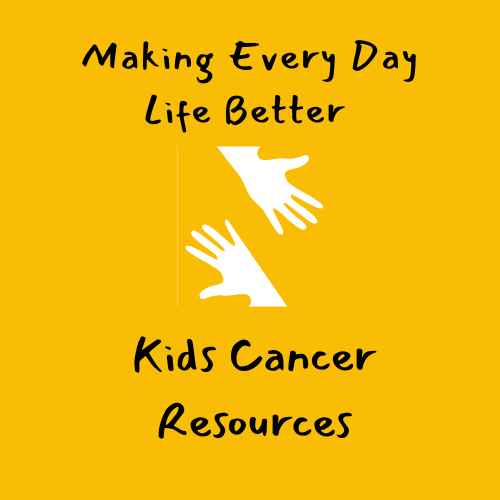Understanding the Importance of Support Childhood Cancer Communities
Facing childhood cancer is an overwhelming journey not only for the child but for the entire family. The emotional, physical, and logistical demands can feel isolating. Finding your tribe—a circle of understanding and compassion—can make all the difference. Support childhood cancer groups provide a unique form of comfort because members share similar experiences and understand challenges firsthand.
These communities offer more than just emotional reassurance; they provide practical advice, resources, and advocacy assistance. Knowing there are others to turn to during dark times fosters resilience. Studies show that families connected with cancer support networks report lower stress levels and improved coping strategies. This kind of solidarity is vital for navigating treatments, hospital stays, and the unpredictable nature of cancer.
How to Find the Right Support Childhood Cancer Group for You
With numerous support options available, identifying the right group is essential. Personal comfort and the quality of support should guide your choice.
Types of Support Groups
– Hospital-Based Groups: Often led by social workers or child life specialists, these provide direct access during treatment phases.
– Online Forums: Convenient and accessible 24/7, perfect for sharing when schedules are demanding.
– Community or Faith Groups: Local organizations can offer in-person emotional and spiritual support.
– Specialized Organizations: Groups focused on specific types of childhood cancer or advocacy.
Key Criteria for Choosing a Group
– Shared Experience: Ensure the group focuses on childhood cancer to maintain relevance.
– Accessibility: Consider location, meeting times, or online availability.
– Diversity and Inclusiveness: A welcoming environment that respects varying backgrounds.
– Professional Facilitation: Some groups feature counselors or trained facilitators who enhance support quality.
Interview potential groups if possible or attend trial sessions. Listening to current members’ feedback often helps gauge how supportive the community feels.
Building Meaningful Connections Within Your Tribe
Joining a support childhood cancer group is the first step; building meaningful connections is the ongoing goal. Trust and vulnerability develop over time but can be facilitated through intentional actions.
Effective Strategies to Connect
– Share Your Story: Openness invites others to reciprocate and builds empathy.
– Listen Actively: Offering undivided attention validates others’ feelings and fosters reciprocity.
– Participate Regularly: Consistency strengthens bonds and creates a reliable support network.
– Engage in Social Activities: Informal gatherings or virtual meetups can deepen relationships beyond the clinical context.
Supporting Your Tribe During Challenging Times
Members will face fluctuations in emotional wellbeing throughout treatments. Recognize signs of burnout or distress and offer proactive support, such as:
– Sending encouraging messages or care packages.
– Offering practical help like meal delivery or transportation assistance.
– Respecting boundaries while reassuring ongoing availability.
These gestures nurture a culture of mutual care, making the network stronger for everyone involved.
Navigating Emotional and Practical Challenges Together
Support childhood cancer groups serve as a lifeline for navigating complex emotions and daily hurdles.
Emotional Support
Feelings of fear, guilt, or helplessness are common. Support communities provide a safe space to express these emotions without judgment. Sharing coping mechanisms such as mindfulness practices, counseling referrals, or journaling tips enriches members’ emotional toolkit.
Practical Guidance
Beyond emotions, families face logistical challenges including insurance navigation, medication management, and school coordination for the child. Experienced members often provide invaluable advice or direct toward resources like financial aid programs and pediatric care specialists.
– Sample resources: Childhood Cancer Support (https://www.childhoodcancer.org) offers information on financial assistance and educational support.
Leveraging Technology to Stay Connected Anytime, Anywhere
Technology has revolutionized support childhood cancer access, making it easier to stay connected despite geographical or time constraints.
Popular Online Platforms and Tools
– Private Facebook Groups: Allow for moderated, secure discussion and peer support.
– Video Conferencing Tools: Zoom or Google Meet support virtual meetings and workshops.
– Mobile Apps: Some organizations have apps for peer connections, reminders, or wellness tracking.
Best Practices for Online Engagement
– Maintain privacy by using pseudonyms if preferred.
– Set boundaries around when and how often to engage to avoid burnout.
– Encourage positivity while recognizing that difficult emotions are natural and valid.
– Use multimedia posts like videos and images to enhance interaction.
When using technology thoughtfully, families can feel connected and supported even during hospital stays or quarantines.
Cultivating Long-Term Support and Advocacy
Finding your tribe goes beyond immediate support—it can inspire advocacy and lasting community bonds.
Becoming an Advocate Together
Many support childhood cancer communities channel their collective energy into raising awareness, fundraising, or influencing healthcare policies. Joining such efforts can bring purpose and empowerment during an otherwise overwhelming experience.
Ongoing Peer Mentorship
As families move through different cancer journey phases, they often become mentors to newcomers. This cyclical support enriches the community fabric and ensures continued access to lived experience wisdom.
Celebrating Milestones and Growth
Acknowledging treatment completions, birthdays, or personal achievements within the tribe fosters hope and resilience. These celebrations remind members of progress and shared strength.
Families can contact [khmuhtadin.com](https://khmuhtadin.com) for guidance, resources, and connection opportunities tailored to support childhood cancer journeys.
Every family deserves a tribe that understands, uplifts, and walks alongside them. By seeking meaningful support childhood cancer communities, you transform an isolating journey into one of shared courage and hope. Reach out today and begin building your network of care and compassion.




